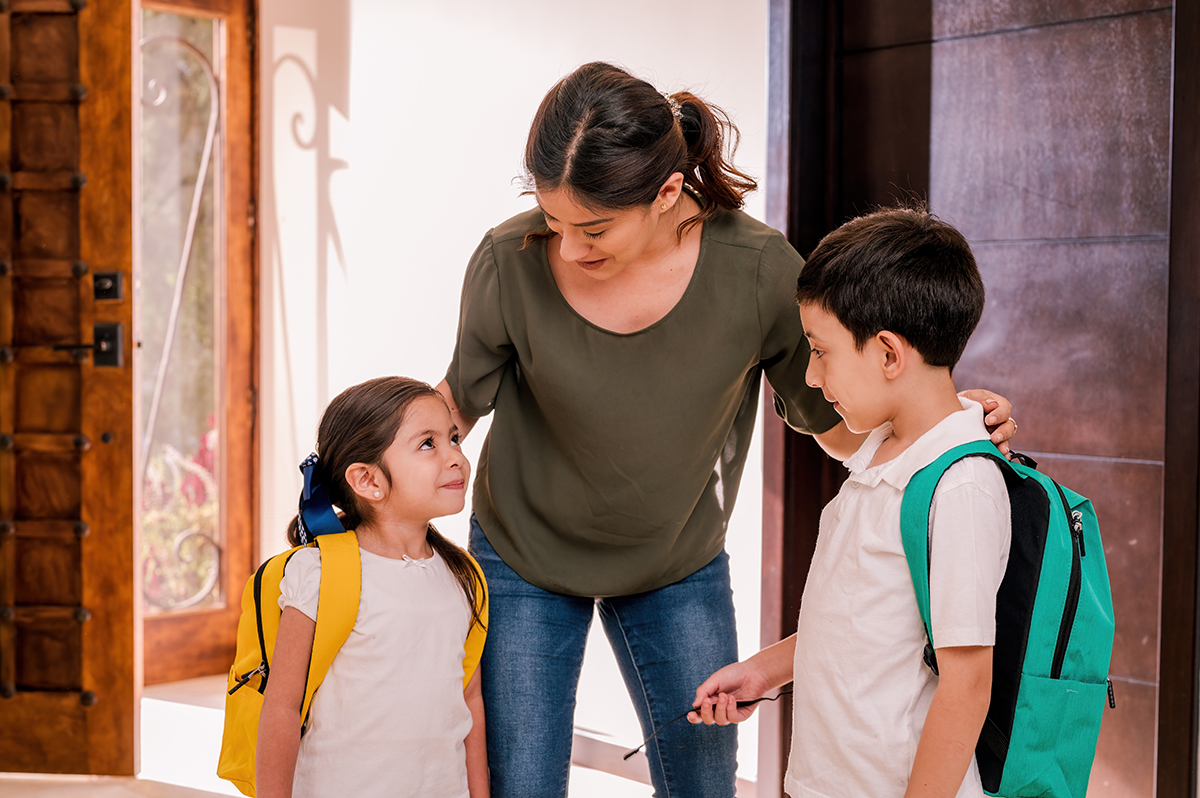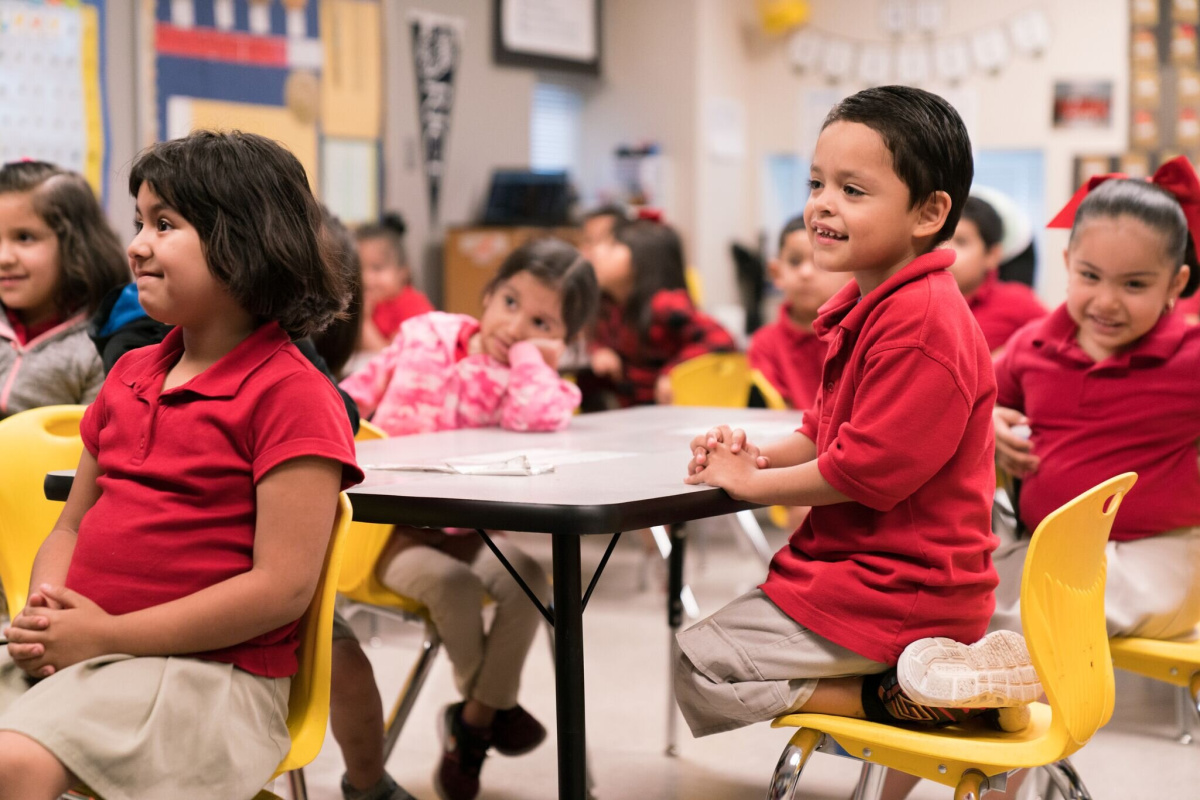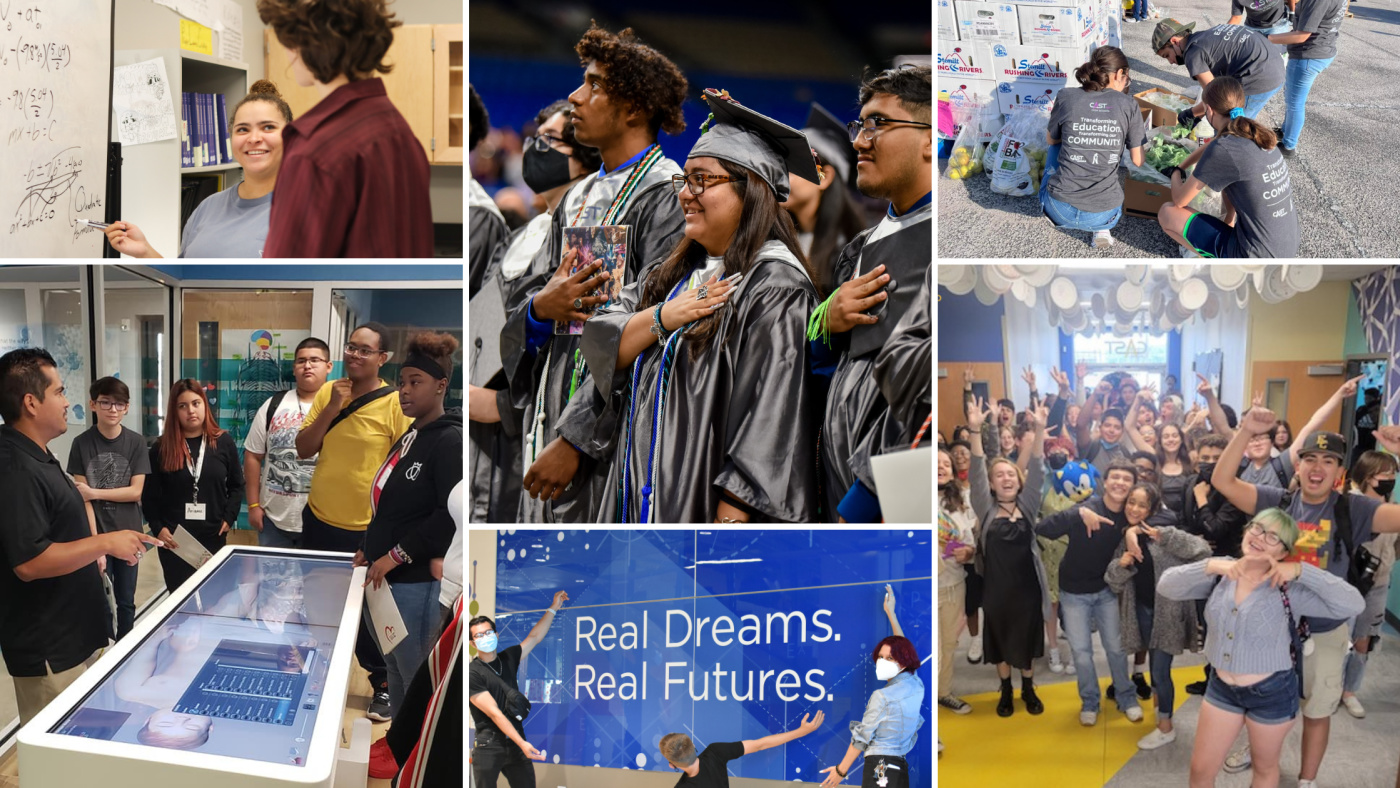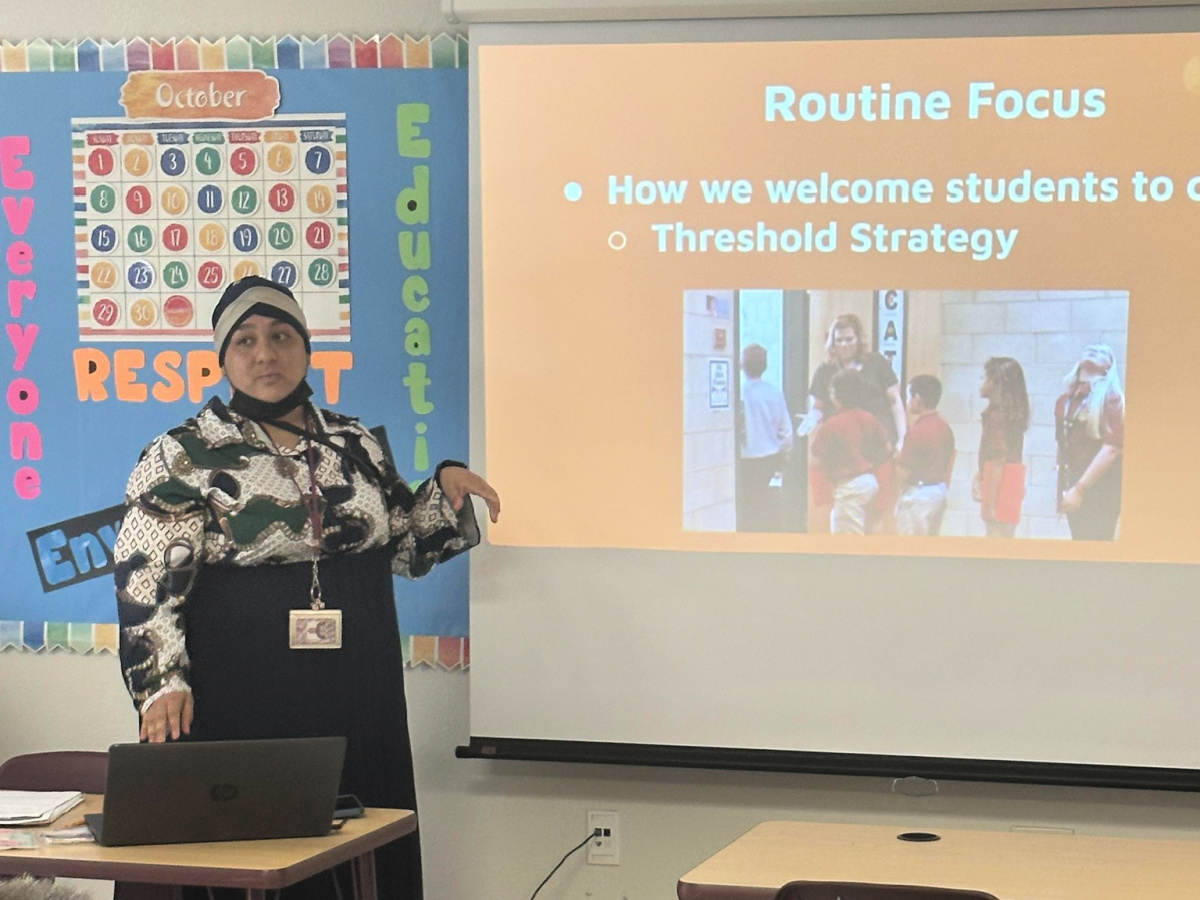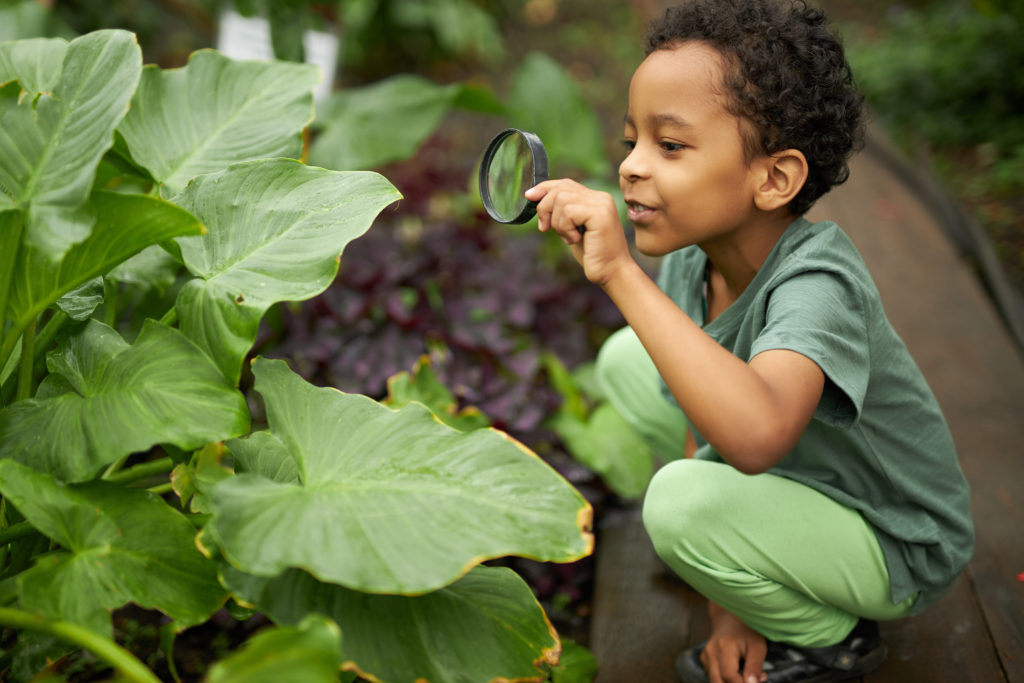
We are proud to present this guest post by Amanda McMickle, Principal Fellow at Compass Rose Public Schools, about the value of nature-based education for supporting students’ resilience.
In the impending wake of the global pandemic, among other changes impacting our country, including greater recognition of the need for social change, school leaders across our community are beginning to plan for the upcoming school year. I think I speak for many when I recall a year full of uncertainties and unknowns along with feelings of isolation and concerns for the safety of my staff, students, and family. With no place to go during much of this year, like many of you, I headed outdoors. As a nature-based educator, I knew that although there may not be answers on the trail, truths can still be found.
Nature Teaches Us About Change
One truth that repeatedly emerged throughout the year was the one thing that gave me the most anxiety during the pandemic, and that was change. I have always feared change of any kind, and living through a pandemic only heightened that fear. Learning from the changes nature endures allowed me to meet the discomfort from both external and internal sources; external in that I had no control over these changes which filled me with a sense of relief, and internally as it allowed me to lean on the natural world that I had come to embrace as a source of refuge.
Noticing how nature responded to all of us staying home was shocking to us at the global level. Revisiting trails on a regular basis allowed for me to personally see how landscapes changed through the seasons. When the snow hit San Antonio, we saw so many plants perish, but within weeks, green life returned. Embracing change through the lens of nature altered my perspective on many of the lessons that grounded me prior to the pandemic.
Here are a few of the lessons I held sacred before the pandemic, how embracing change in nature during the pandemic has altered those lessons, and how I hope they can be applied in our schools.
Lessons of Nature-Based Education
Restoration Over Resilience
Resilience was probably the lesson from nature that I spoke of the most. In fact, it was one of the core principles of my former school. Our planet is resilient. There is no doubt it will endure all we do to it and recover from what we have done. Of course, we might not be here to experience the recovery as the earth has to only shift and shake to rid it of humans.
Through the lens of change, I realized that we should replace resilience with restoration. Some areas of nature need just to be left alone to restore itself, while other areas need support for restoration to occur. Doesn’t this sound like many of the people you know? We need to focus less on picking ourselves up and dusting ourselves off as resiliency implies, and more focus on sitting in those heavy spaces and doing some personal work before we get up and move forward.
During the pandemic I would often walk at a park that has had volunteers working to restore it to its native state for the past 70 years. What an incredible reminder that the work to restore a site, and ourselves, never ends. I now see resiliency as a destination. A person is either resilient or they are not. By switching the focus to restoration, it can be experienced as a process that we continually work on to restore us to our authentic selves.
My hope for schools is that we can support our students in their personal restoration efforts allowing each to progress on that journey at their own pace.
Grace Over Patience
Gardens are a great teacher when we want children to learn patience. To plant a seedling and wait for the time to harvest a vegetable to eat requires patience. Even though nature teaches patience, often patience has come to have a negative connotation. Being told to be patient implies that a student has the strategies required to wait and control themselves.
Change has taught me that perhaps we don’t all have those strategies, and that is okay. Being told to show others grace suggests we need to meet them where they are and offer support if they are showing up without strategies.
My hope is that schools develop environments and cultures that allow students and staff to show grace so that students enter with a strong sense of belonging that leads to a place of genuine progress and growth.
Awe Over Observation
Observing nature is powerful. Students learn how systems and processes work, they learn cause-and-effect through observation, and they see how our world changes over time. The outdoors, I believe, is the best textbook. Emerging out of the pandemic where students have had an abundance of screen time, I think we need to allow students to not only observe nature, but also be in awe of it as well.
Being in awe of nature is less about documenting findings and more about sitting in a space of presence and reverence. Research has shown that by being in awe of nature, humans are more empathetic towards others as they realize from a very personal place that they are part of something much bigger than themselves.
My hope is that our schools continue to teach through observations, but also allow students to be in awe of the beauty of the natural world.
Post-Pandemic Lessons from Nature
I do not think we will, or should, return back to the way things were before the pandemic. We have all changed, individually and collectively, and it could be detrimental to our students to move forward in hopes of returning to normal as it will diminish the lessons learned along the way. School leaders need to develop a specific plan along with their staff and families to use over a determined number of years to ensure space for restoration is available, grace is offered to all, and there are opportunities to enjoy the wonder and awe of the world around us.
Charter Moms Chats
Amanda McMickle, Principal Fellow at Compass Rose Public Schools, joins Inga Cotton on Charter Moms Chats on June 15, 2021 at 4:00 PM Central live on Facebook and YouTube.
Amanda McMickle is a Principal Fellow at Compass Rose Public Schools. She will be developing and implementing nature-based and place-based education at their Journey campus opening in August 2021. She is the former director of Will Smith Zoo School and founder of NEST—Nature-based Education Support in Texas. Amanda is a student at UIW, working towards her PhD in Adult Education, Social Innovation, and Entrepreneurship.
Read More About Educators and Advocacy
- “Building Agency: How Akeem Brown Is Helping Kids See Their Strengths at Essence Prep,” San Antonio Charter Moms, June 8, 2021
- “Access to Success: How Anthony Gordon Is Advancing the Conversation at S.H. James Prep,” Anthony Gordon, San Antonio Charter Moms, June 1, 2021
- “Teacher Tales: “You Are My Why” — Abel F. De Leon at the School of Science and Technology,” Abel F. De Leon, San Antonio Charter Moms, (reposted by Education Post), November 4, 2020
- “Teacher Tales: Jefferson High School International Baccalaureate World School in San Antonio ISD,” Ralf Halderman and Chris Stanley, San Antonio Charter Moms, November 18, 2020
- “Guide to Enrolling in Compass Rose Academy Schools in San Antonio for 2021–2022,” San Antonio Charter Moms, October 27, 2020
- “Explore San Antonio’s Greenway Trails System,” Brandon Ross, San Antonio Charter Moms, July 17, 2020
- “Stay Green at Home,” Wendy Bradley, San Antonio Charter Moms, June 11, 2020
- “Appreciating the Blue Hole, the Source of the San Antonio River,” San Antonio Charter Moms, October 3, 2018
- “Meet the Teacher Night at Compass Rose Academy in San Antonio,” San Antonio Charter Moms, August 21, 2017
- “What Happens When We Experience ‘Awe,'” Seeker, August 15, 2016

